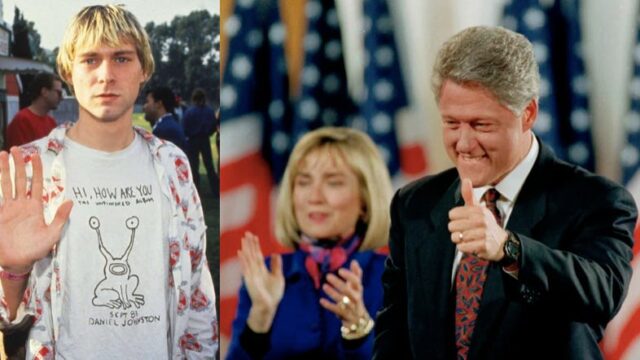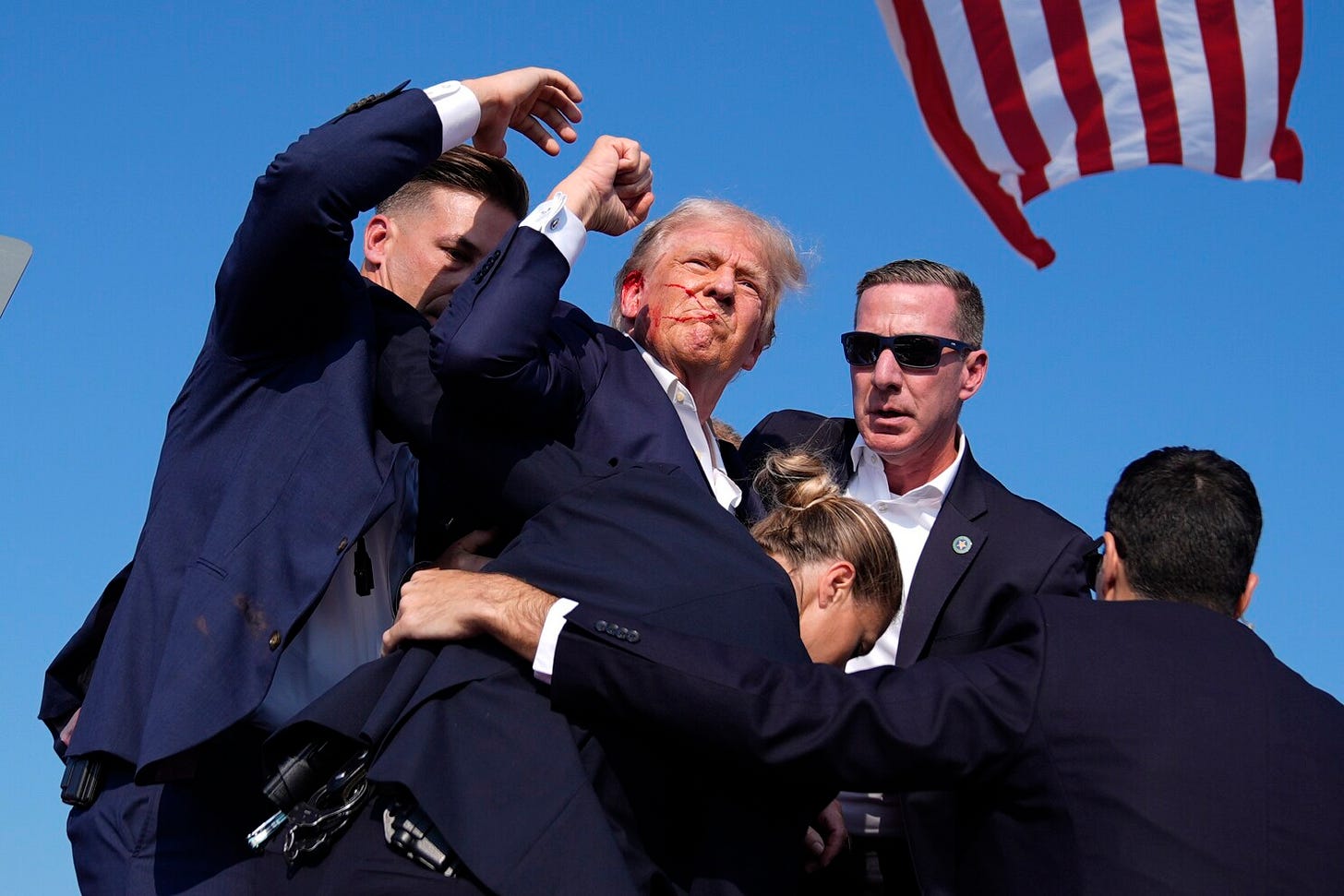Why the 1990s Sucked

The most shocking thing about Mike Ma’s Harassment Architecture was finding out that younger generations romanticize the 1990s. Boomers say about the 60s, like Peter Fonda’s character in The Limey, “you had to be there” to understand how great it was. I guess you had to be there, you had to be Gen X, to understand how bad the 90s really were.
I understand why it might look cool if you weren’t. You can assemble a handful of cool things that were going on—like Twin Peaks, The X Files, early Tarantino, Ween, Trip Hop, Beavis and Butthead, Britpop—and make a collage of them and think that’s what the 90s was about. But those things were ephemeral. At the core of the 90s was a hollowness best summed up by the title of a then-popular book which I never read: The Unbearable Lightness of Being. We, America, had won the Cold War. Then we kicked Saddam’s ass without even trying and watched it all on television. It was like the astronaut putting the MTV flag on the moon suddenly became real life. Top of the world, ma, the end of history.
Then, two things happened in 1992: Nirvana displaced Michael Jackson and hair metal on the pop charts, and the country elected Bill Clinton instead of giving George H.W. Bush a second term. Both were expressions of the popular taste, the popular will. Americans were given global victory, and it immediately made them go limp. They chose a fat hick shyster to lead them, and a whiny depressed scoliotic junky to be their voice, the first one saying, “I feel your pain,” and the second one just screaming PAIN.
Seinfeld had the right idea: after victory and global supremacy, there was nothing. There was nothing for young people to aspire to because everything had already been done and everything had already been won—Alexander wept, for there were no more worlds to conquer. This is what Richard Linklater’s film Slacker is about, which captures the feeling of being in your teens and twenties in the 90s better than any other film I know of. We couldn’t dream of conquering space anymore because the Challenger had blown up on live tv right there in our grade school classrooms. It would be ten years before Islamic jihad gave us a new foreign enemy to hate. And so, with nothing to do and no one to fight, we turned inwards, against ourselves.
We loved Nirvana because we hated our parents. (“I tried hard to have a father but instead I had a dad … that legendary divorce is such a bore.”) Watch the film Pump Up The Volume and see how the boomer parents are portrayed. We hated them because they were hypocrites who went from 60s protesters and radicals to 80s yuppies and conservatives who told us to Just Say No to all the same shit to which they had said yes. (h/t Niccolo Soldo for this point.) They got Free Love; we got Safe Sex and AIDS.
But we have to admit the awful truth: the Boomers are better than we are. Not because they were more righteous—they weren’t—but because they were more practical and less idealistic, because when the time came to embrace hypocrisy, they did it with gusto and went all in, they grabbed hold of the reins of power and they still haven’t let them go all these years later. I imagine they feel about us, their slacker children, a bit like what Jack Nicholson says about blacks in The Departed: “If I have one thing against the black chappies, it’s this: no one gives it to you. You have to take it.” Never mind that their parents literally gave it all to them, which is the real reason why Boomers call them the “Greatest Generation.” One thing Gen X and the Boomers have in common is that we both refuse to grow up, but in different ways. Boomers cling to their happy inner child who got spoiled by their GG parents, and they still believe, at a fundamental level, that life is about having fun. Gen X clings to our wounded inner child who was neglected by our absent Boomer parents, and we think life is fundamentally about sucking it up in the face of the absurd.
Boomers got the Kennedy assassination, we got Kurt Cobain’s suicide. I remember watching tv in my bedroom that April day when the news came on that he was dead. I wasn’t even that big of a Nirvana fan, but it still stuck with me. After that it was bootlegs of Nirvana Unplugged for an entire year, that sad and painful rendition of “Pennyroyal Tea,” the haunting cover of “Where Did You Sleep Last Night?” What a fucking drag. But grunge and the whole “alternative rock” scene which became the mainstream was already a fucking drag even before Cobain offed himself. His suicide was simply the icing on the cake, the thing that made it all authentic and meaningful. It would have been so much better if he had lived and faded away into obscurity. Instead he left a dark cloud over the rest of the decade. Half of pop music wanted to sound just like him, the other half wanted to pretend to be happy. All of it was garbage.
In politics, Bill Clinton represented the pretend happiness. Like Jimmy Carter, he wanted a kinder, gentler image for American government. Unlike Carter, he was not an idealist but a shrewd opportunist. Clinton oversaw the acceleration of American deindustrialization by signing NAFTA into law and then giving permanent Most Favored Nation status to China, which paved the way for their entry into the WTO a few years later under George Bush. Clinton actually got caught taking CCP bribe money and had to give it back. There were myriad things for which the Right could have gone after Clinton, but true to their “beautiful loser” form, they decided that his most egregious offense was getting a blowjob, and they made a mockery of themselves and the impeachment process, succeeding only in further cementing their entirely deserved reputation as uptight prudes and closet cases.
In many ways, woke government began with the Clinton administration. This is because Clinton was the first Boomer president, and both he and his wife were products of the 1960s. They began the process of letting homosexuals into the military with their “Don’t Ask, Don’t Tell” policy. They began purging the military of right-wingers with the Tailhook scandal, and they began the persecution of militias and right-wing groups which resulted in the deaths of Randy Weaver and of the Branch Davidians in Waco, Texas. It may have also resulted in the bombing of the Murrah Building in Oklahoma, if the theories about an FBI sting gone very bad have any truth to them.
Bill Clinton’s speaking style was all about showing emotion, however fake and contrived. But the public welcomed it because his predecessor couldn’t do it; nor, as it turned out, could his would-be successor Al Gore, who was rejected by the public for being “wooden.” The story of George H.W. Bush losing to Bill Clinton only to have Clinton’s VP lose to Bush’s son should be an epic tale, like something out of ancient Rome, except it isn’t because all of these people are mediocre and boring, and politically they are almost indistinguishable from one another.
Mediocre leaders, loser pop icons. The calm before the storm.
The storm of course was 9/11. It ended the 90s for good and brought in something else, but what that something else was we still don’t really know. Like the decade itself, it has no name (“the aughts,” what the fuck are “the aughts”?). Like the 90s, it was a kind of cultural oblivion that went on despite the dismantling of the country itself that was happening all around us. Mass immigration started for real under Bush, at the same time that the War on Terror made America more hated than ever in many parts of the third world—a schizophrenic policy which Steve Sailer called “Invade the World, Invite the World.” Store shelves became flooded with cheap goods from China as more and more factories closed. People got used to having their genitals x-rayed at the airport and forgot that there was ever a time when you didn’t have to go through that ordeal. Cell phones became ubiquitous, and people forgot what it was once like to be unreachable by phone.
The truth is, from the 90s onward, America experienced a terrible decline both politically and culturally. Nothing got better, things only got worse. I say this not as an old curmudgeon, but as someone who saw enough of it to recognize what a momentous turning point 2016 was. As I wrote in an earlier article, Trump, the events leading up to his election, and the events following, represent a sea change in American life. Yes, the country is in a far worse position than it was in 1992. But the momentum is now heading in the other direction. There is something to fight for again, and not just as a lone Cassandra yelling in the wilderness, as was the case in the 90s and 00s—just ask Alex Jones.
I do not envy the young, except for their youth itself. I wouldn’t trade my analog adolescence for their digital one. But neither should they envy those of us who grew up in the 90s. To grow up in a culture that is in steep decline is a kind of premature aging—you look around you and wonder what exactly you are growing up for, and you wonder how your best years can be ahead of you if your country’s best years are already behind you.
I don’t think young people today need to feel that way anymore. It’s hardly a given that things will reverse course, but there is an energy and momentum that did not exist before. Take it from me, whose generation embraced as anthem a song that said “I’m a loser, baby, so why don’t you kill me?”—It’s much better to Fight! Fight! Fight!

